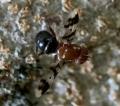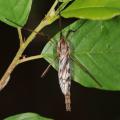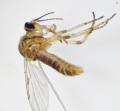Diptera.info :: Identification queries :: Diptera (adults)
Who is here? 1 guest(s)
|
Sarcophaga cf. carnaria ?
|
|
| jorgemotalmeida |
Posted on 16-09-2006 20:35
|
|
Member Location: Viseu - PORTUGAL Posts: 9296 Joined: 05.06.06 |
Hi flyforum taken on 15th September 2006 in Silgueiros - Viseu PORTUGAL. jorgemotalmeida attached the following image: 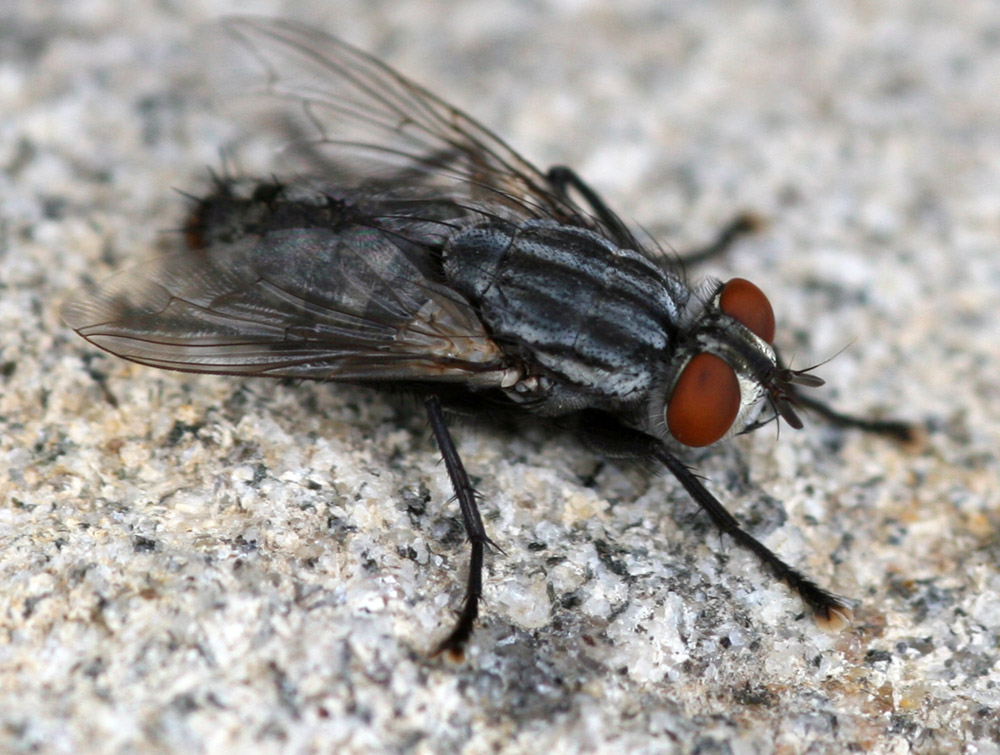 [190.29Kb] |
| jorgemotalmeida |
Posted on 16-09-2006 20:42
|
|
Member Location: Viseu - PORTUGAL Posts: 9296 Joined: 05.06.06 |
face of this Sarcophaga...
jorgemotalmeida attached the following image: 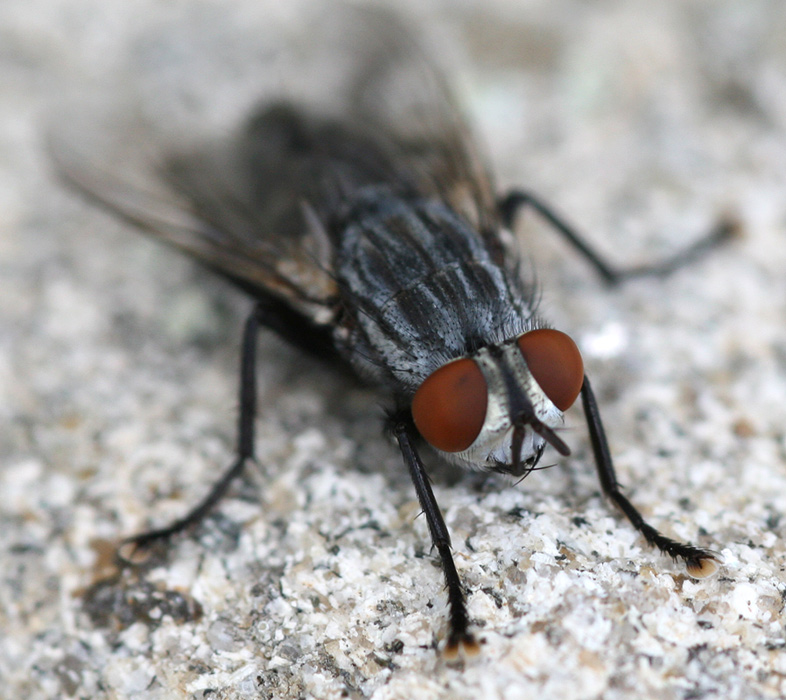 [181.87Kb] |
| jorgemotalmeida |
Posted on 16-09-2006 20:46
|
|
Member Location: Viseu - PORTUGAL Posts: 9296 Joined: 05.06.06 |
posterior view of Sarcophaga..
jorgemotalmeida attached the following image: 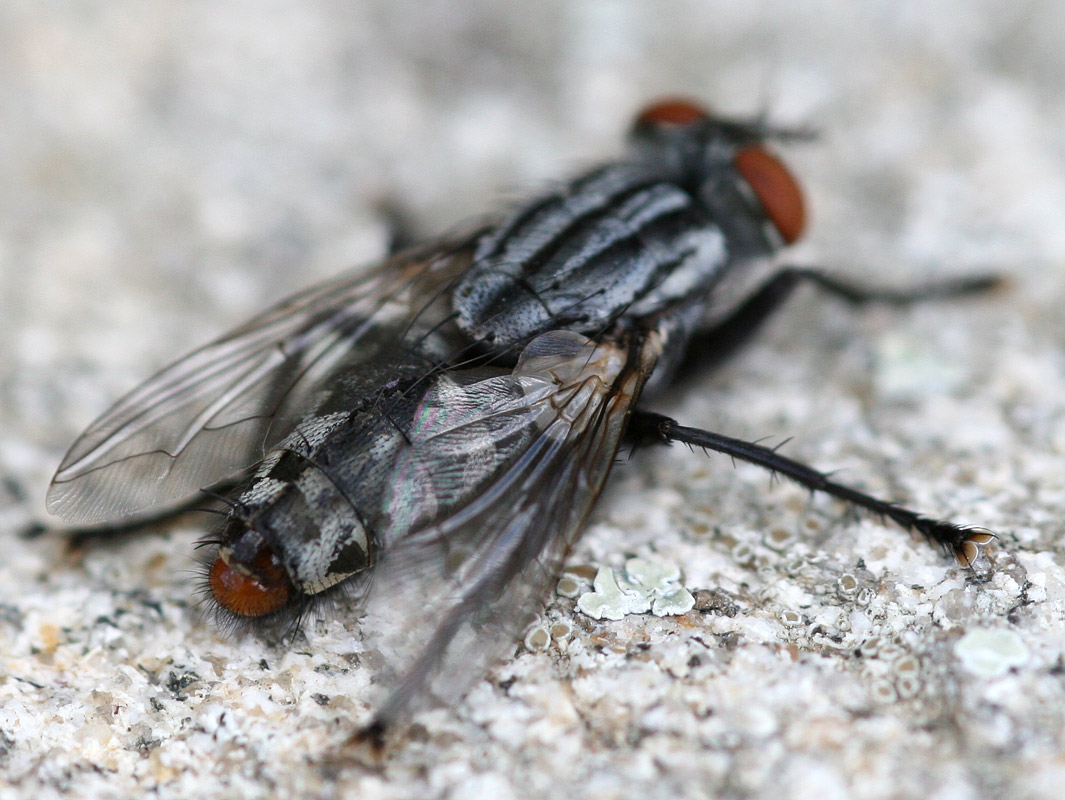 [191.66Kb] |
| Xespok |
Posted on 17-09-2006 13:54
|
|
Member Location: Debrecen, Hungary Posts: 5551 Joined: 02.03.05 |
No! Red genitals point away from Sarcophaga (Sarcophaga) carnaria (which probably does not occur in Portugal), and most data should possibly be verified. This fly probably does belong to another genus. |
| jorgemotalmeida |
Posted on 17-09-2006 21:37
|
|
Member Location: Viseu - PORTUGAL Posts: 9296 Joined: 05.06.06 |
Xespok wrote: No! Red genitals point away from Sarcophaga (Sarcophaga) carnaria (which probably does not occur in Portugal), and most data should possibly be verified. This fly probably does belong to another genus. I thought that there would be a S. carnaria here.. So, if not Sarcophaga, which are the other possiblities? But Sarcophagidae b y sure.... very red eyes... and markings in torax. |
| Xespok |
Posted on 17-09-2006 22:10
|
|
Member Location: Debrecen, Hungary Posts: 5551 Joined: 02.03.05 |
Sarcophagidae for sure. Also subfamily Sarcophaginae. But I can not help you further. I also have a few images with red genitals, which await an expert to be determined. Actually these flies do look very different from Sarcophaga (Parasarcphaga sp). S. carnaria is possibly a more Northern species, and it is replaed by other species (separable by genital morphology) in more Southern locations. The Hungarian S. carnaria specimens were reexamined, and it turned out that maybe 5/10 of the thousands of specimens belonged to S. carnaria, the others were closely related S. species. |
| Tony Irwin |
Posted on 17-09-2006 22:21
|
|
Member Location: Norwich, England Posts: 7280 Joined: 19.11.04 |
The red genitalia and extensive white hairs on the genae suggest that this is Sarcophaga (Bercaea) africa, male. Some workers feel that many of the Sarcophaga subgenera should be given generic status, but the British Diptera Checklist and Fauna Europaea both consider subgeneric staus is appropriate.
Tony ---------- Tony Irwin |
|
|
|
| Jump to Forum: |


